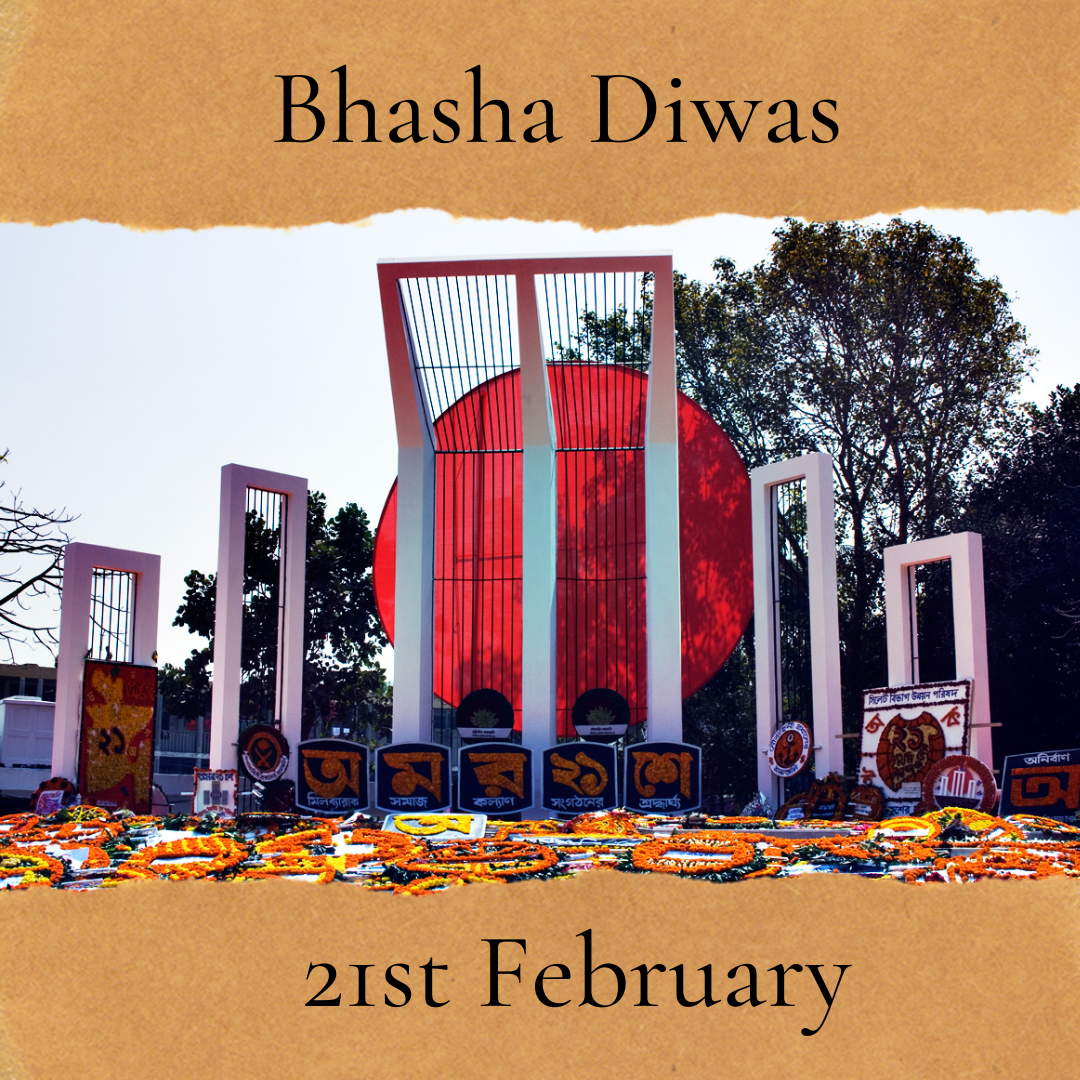Bhasha Mash: A celebration of Linguistic Diversity
Pratiti, Class of 2020 On 21st February 1952, students and political activists had gathered in Dhaka

By Anjana Ashok, UG 22
In 1947, Urdu was declared the official language of the entire Pakistan, despite a majority of the population of East Pakistan speaking Bangla. This grew the roots for a huge protest on February 21st, 1952 which shook grounds and changed perspectives: The Bengali Language Movement. Unified by the love for their mother tongue, this movement demanded to declare Bangla one of the national languages of Pakistan. It played a pivotal role in the liberation of Bangladesh.
In 1999, UNESCO declared February 21st ‘International Mother Language Day’ or ‘Bhasha Diwas’, emphasising the importance of celebrating all languages, especially now, in a day and age where so many face extinction. Inspired by Bhasha Diwas, Sandhi—the Language Society at Ashoka—commemorates its spirit through the entire month of February with ‘Bhasha Mash’ or ‘Language Month’. The event explores the presence of languages throughout history and in our daily lives. This year they took on a new challenge: conducting Bhasha Mash online for the first time. And it was very successful indeed!
Sandhi’s Bhasha Mash spans several events throughout the month, such as talks, engaging sessions and language-based posts. Usually, they choose a theme under which they design their events, but this year, due to the online aspect, they’ve decided to take a more free-wheeling route. They want to make the best of this virtual situation and use it to cover a wider variety of language-related events. They conducted several enjoyable events throughout February for the student population to interact with.
Their first event involved Ashoka’s faculty—they asked our Professors for recommendations of their favourite translated literature, from and to any language. It appeared on Sandhi’s official Instagram page as a series of posts, titled “Professors Recommend- Books in Translation”. Some recommendations were: A. Revathi’s “The Truth About Me: A Hijra Life Story” translated from Tamil, the English translation of Homer’s “The Iliad”, Ashapurna Devi’s “Satyabati Trilogy”, from Bangla to Hindi, and Anne Carson’s translation of Sappho’s poetry. It created an opportunity for students to understand and discover new translations, as well as to appreciate the extensive variety of language in literature.

For the second event on February 17th, Sandhi was able to collaborate with Professor Mali Skotheim for an exciting online session called “When In Rome: A Beginner’s Guide to Ancient Rome.” This event was a fun-filled walk-through of ancient Rome, through the lens of the Latin language. The audience was taught important Latin phrases that they may have used, had they lived a daily life in Ancient Rome—how to order a meal, how you may find a seat in the Colosseum, how to greet strangers—the list is endless! It was a captivating event, blending the learning of a language with understanding the lifestyle and culture of the city of its origin.

On February 26th, Ashoka’s Undergraduate Writing Program (UWP) and the Literary Society collaborated for a live session with all the published translators and writers from the current ASP batch. It was a relaxed and rewarding session conducted by Professor Devapriya Roy, with the Guests of Honour being Professor Arunava Sinha and Professor Aditi Sriram. The students talked about their work and read excerpts as well, and this event was a great platform to acknowledge and congratulate them. It also served as exposure and inspiration for anyone interested in delving deeper into the world of language and translation!
The last official event of Sandhi’s Bhasha Mash was on February 28th, with the publication of a regional music playlist. It contains compilations of folk songs and traditional songs from different parts of India. The link to the playlist can be found on their Instagram page, and it is even open to the student body to add their favourite songs! It’s a lovely way to wrap up the month of languages at Ashoka.

Thank you, Sandhi, for a wonderful Bhasha Mash 2021!